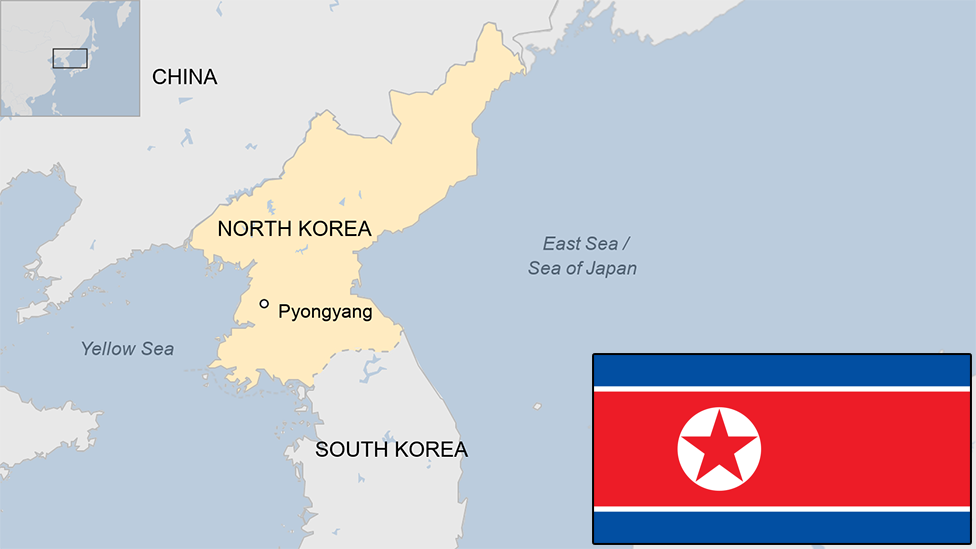North Korea: The limits of small talk in Pyongyang
- Published
Rupert Wingfield-Hayes reports from North Korea's capital Pyongyang
The grim-faced customs officer is wearing one of those slightly ridiculous oversized military caps that they were so fond of in the Soviet Union.
It makes the slightly built North Korean man in his baggy uniform comically top heavy.
"Open!" he grunts, pointing at my mobile phone.
I dutifully punch in the pass code. He grabs it back and goes immediately to photos. He scrolls through pictures of my children skiing, Japanese cherry blossom, the Hong Kong skyline.
Apparently satisfied, he turns to my suitcase. "Books?" he barks. No, no books. "Movies?" No, no movies. I am sent off to another desk where a much less gruff lady is already looking through my laptop.
While I watch, the process is repeated over and over with Russian tourists, a Thai businessman, a group of elderly Japanese-Koreans. It looks and feels intimidating, and maybe it is supposed to be.
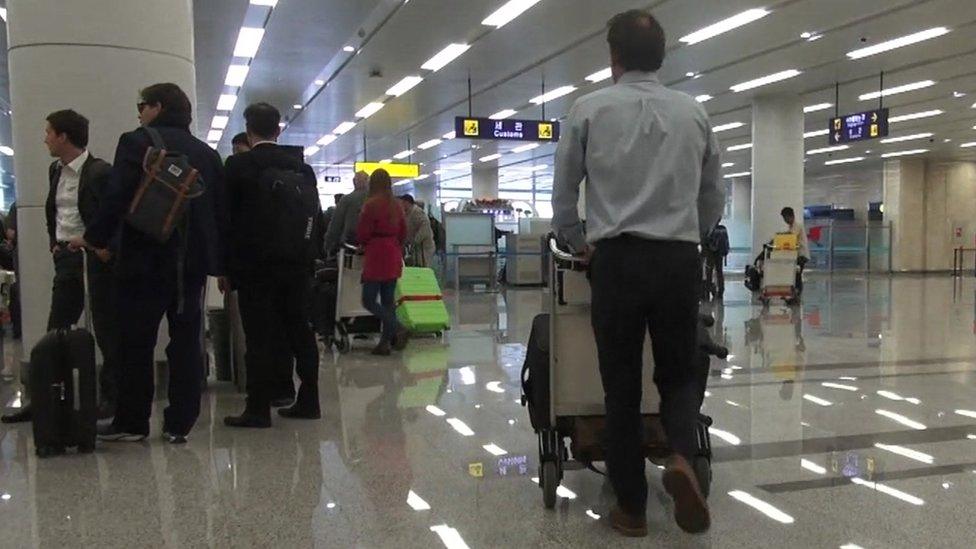
Airport procedures over, it is time to hit the town
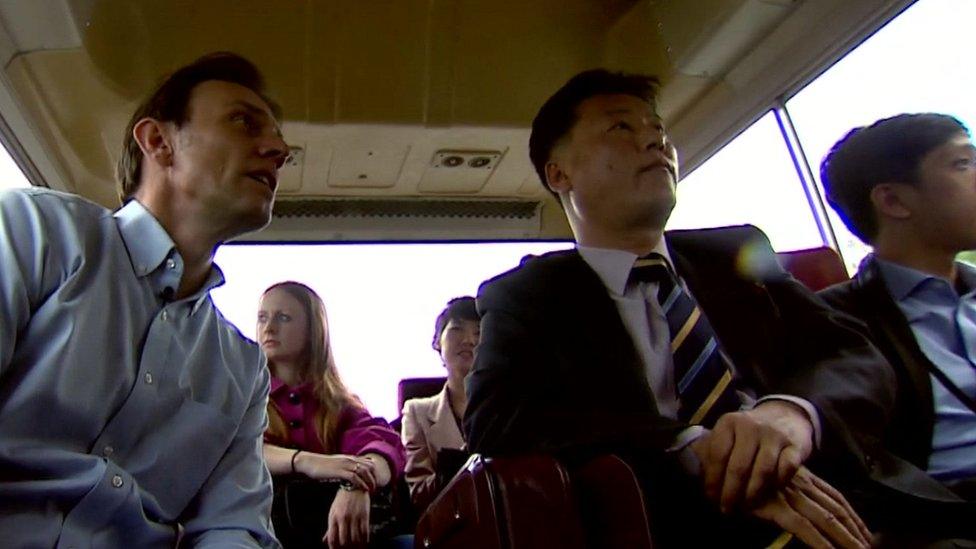
Our minders take us to into the city but do not seem very chatty
But it struck me it is not the behaviour of a country confident in itself. It is the behaviour of a regime constantly in fear of the outside world. What are they afraid of? What do they think will happen if information from outside seeps in?
Outside the terminal in the capital, Pyongyang, a team of minders is waiting for us. A middle-aged man with a crew cut and ill-fitting suit approaches.
On his lapel a badge with the smiling faces of Kim Il-sung, the supreme leader from 1948 until his death in 1994, and Kim Jong-il, his son and successor, who died in 2011. All of our minders have one. It's part of the national uniform.
"Hello Mr Rupert," the man says, taking my bag. I haven't introduced myself. They have memorised each of our faces.
We ride together in an old Toyota minibus. I try to engage one of our minders in conversation.
But Mr Kim is not a talker.
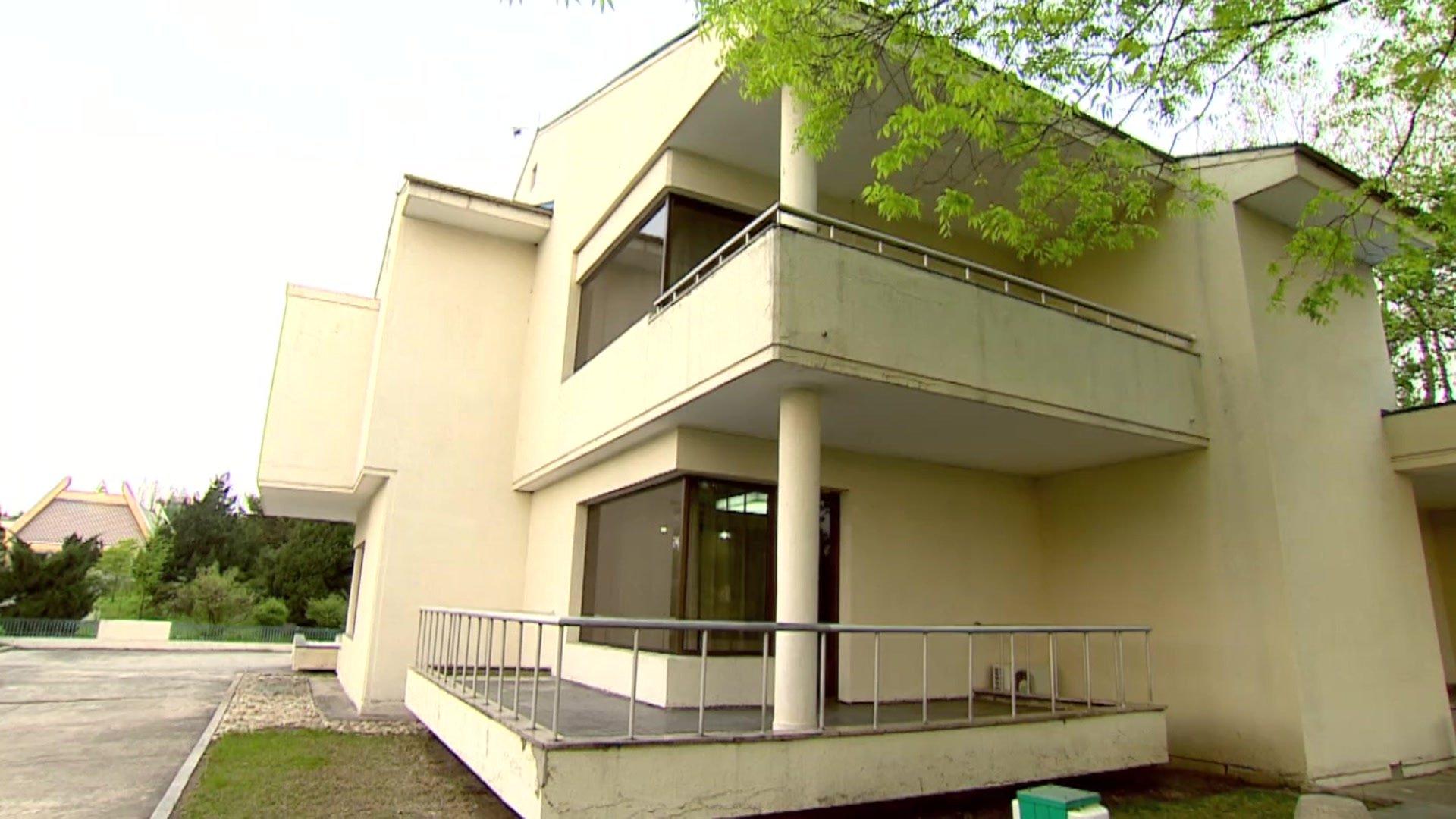
Guesthouse number 24 on a landscaped compound is home for the week in Pyongyang
"There seems to be more traffic on the roads than last time I came," I suggest. Nothing. "Do you get traffic jams in Pyongyang these days?" He shakes his head.
There is more traffic than last time I came. Chinese-built SUVs speed along Pyongyang's wide boulevards.
A lot of old Mercedes Benz sedans seem to have found a second life here. The tall, Soviet-style apartment blocks have been given brightly coloured paintwork, some pink, others green and orange. The whole place looks brighter and cleaner.
But it's still a huge contrast with any other city in Asia. There are no garish neon signs hanging from buildings. Huge portraits of Kim Il-sung and Kim Jong-il stare down from vast government buildings.
"Where do people in Pyongyang like to go on Friday nights?" one of my colleagues asks another minder. "Why do you ask specifically about Friday night?" she responds. She seems genuinely confused by the question.
Our bus pulls through a gate and into a wide, landscaped compound. There are large Western-style houses set in lush gardens. They look like someone's idea of a posh American gated community, from the 1970s. We are dropped at number 24.
Our thoughts turn pretty rapidly to escape - or at least attempting it. With my cameraman Matt, I head back towards the main gate. There is shouting from behind, and now they are running, waving their hands at us. Finally one of our minders catches up, panting and out of breath.
"They are waiting for you at the guest house," he says. "Please you must come now, dinner is ready and you are the last ones, everyone is waiting for you."
UPDATE 19 May: This story was slightly edited in the interests of our staff while they were in North Korea. We have now republished it in its original form.
- Published30 April 2016
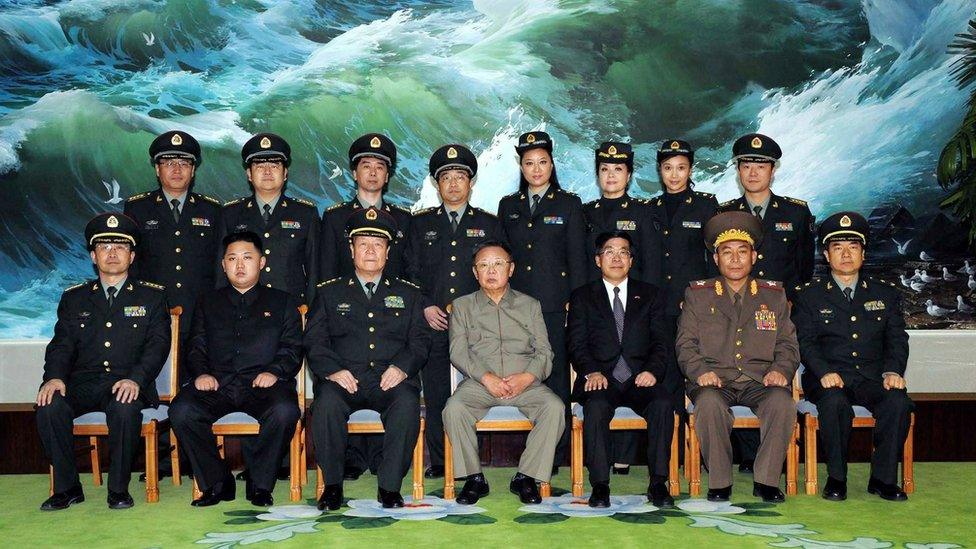
- Published10 August 2017
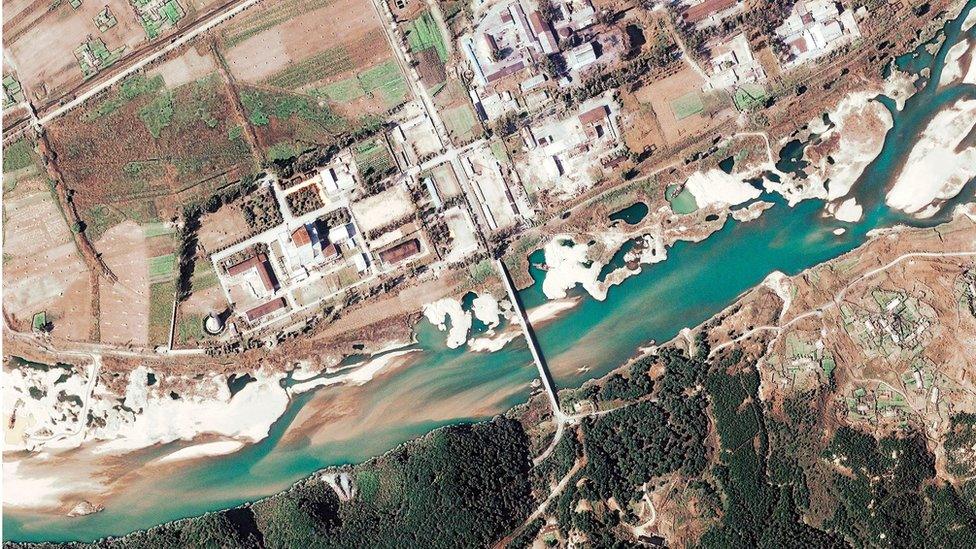
- Published11 September 2023
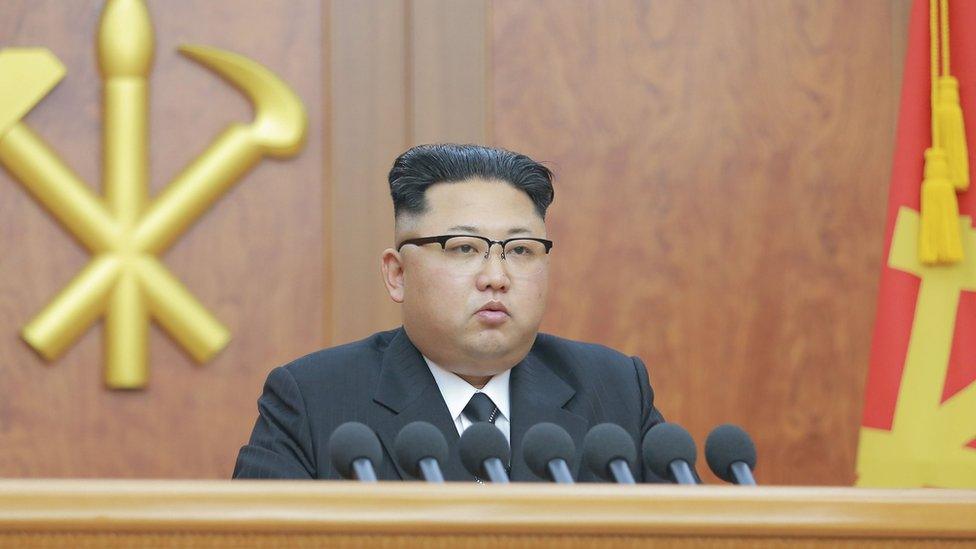
- Published19 July 2023
